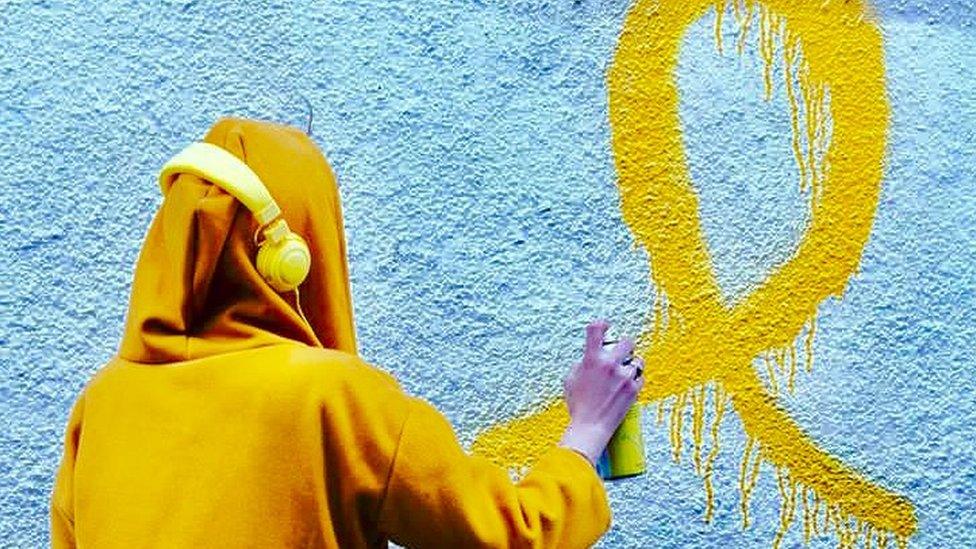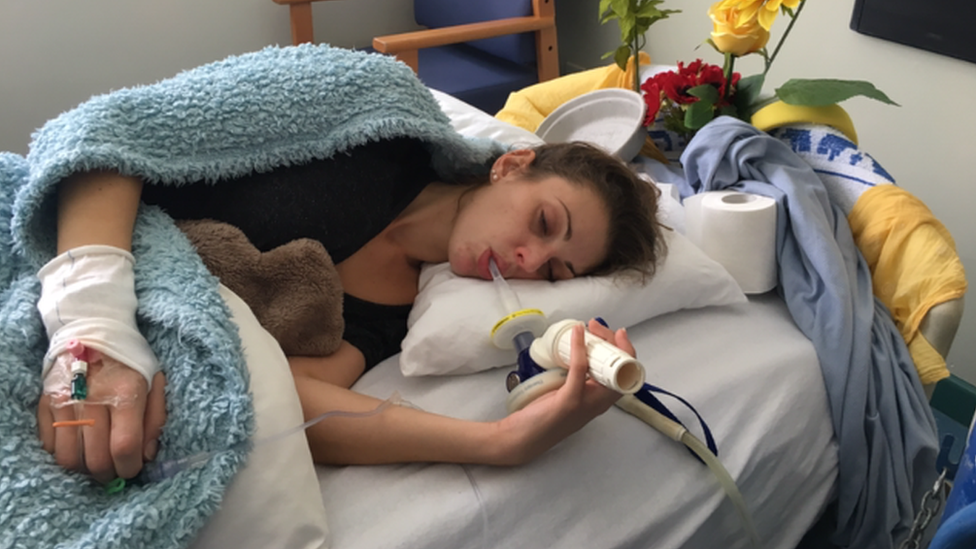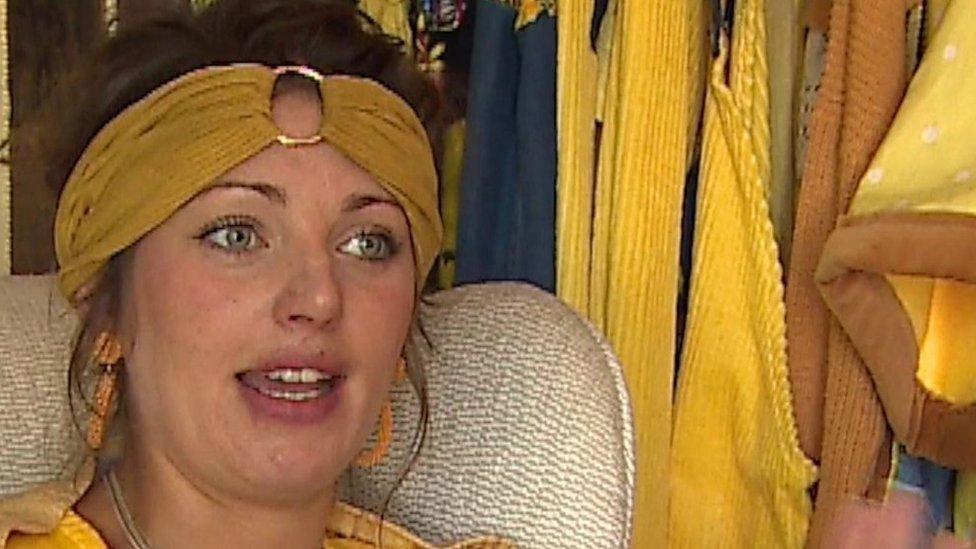Endometriosis: Women 'taking their own lives' due to lack of support
- Published
Jaimee Rae McCormack has suffered with the condition for 15 years
A woman with endometriosis says she has known others with the condition to take their own lives because of a lack of support.
More than 13,500 women have shared their experience with the BBC in the largest study of its kind into the condition.
Around half told the study it had led to suicidal thoughts.
But Jaimee Rae McCormack from Cardiff said there was hope and she had found ways of "taking back control".
MPs have announced the launch of an inquiry, following the BBC's findings.
The condition, where cells like the ones in the lining of the womb are found elsewhere in the body, can cause chronic pain, painful sex and lead to depression and infertility.

Jaimee has been painting a wall of her house to raise awareness of the condition
Jaimee has been unwell with endometriosis since the age of 12 but was not diagnosed until she was 25. Endometriosis UK said on average it takes 7.5 years from the onset of symptoms to get a diagnosis.
The 29-year-old described the pain as "like hot knives stabbing through me, like fireworks going off inside me, like something twisting and stretching and taking over me".
"It's a bursting of darkness that stops you in your tracks," she said.
"I had moments where I couldn't breathe and I'd collapse down to the floor.
"I'd be so sick that I'd lose a stone within a couple of days and became so weak and frail that I wasn't living. My body was still here but I wasn't able to live."
Jaimee uses a wall on the outside of her house to paint images and information about the condition which she shares on social media.
She says some of the women she has connected with through the condition have been so desperate they have taken their own lives: "Sadly since starting the endo-wall I have now got eight endo-angels...
"And that's women who have gone from this life during the period of me starting the spray-painting.
"Some of them have gone due to taking their own lives because they just couldn't cope anymore and didn't have the right support. It's really heart-breaking."
She wants health workers to have more awareness of the condition: "The medical profession [need to] open their eyes and learn a little bit more...
"If more people are trained... that would save time, money, and people's mentality and lives really."

Endometriosis symptoms:
Lower tummy or back (pelvic) pain - usually worse during your period
Period pain that stops you doing normal activities
Pain during or after sex
Pain when going to the toilet during your period
Feeling sick, constipation, diarrhoea, or blood in your urine during your period
Difficulty getting pregnant
The condition mainly affects girls and women of childbearing age and is less common in women who have been through the menopause

Jaimee has had several operations to remove endometriosis from her uterus, ovaries, fallopian tube, colon, rectum, bowel, bladder, liver, appendix and abdomen.
After an operation where a cyst was removed from her ovary she decided it was time to try for a baby.
The baby is due in January and with the absence of periods her symptoms have disappeared.

Endometriosis affects one in 10 women in the UK
But starting a family was a big decision for Jaimee: "I felt I had missed out on so much of life because I'd been so ill.
"I didn't feel it was fair for me to bring a child into the world when I still didn't feel like I had finished my own childhood in some respects.
"I always felt that it was a bit unfair of the doctors to say 'oh just have a child and everything will be fine' because the reality is there isn't proof that that is the case.
"I still have the doubt in my mind that once I have had my child and once I have finished breastfeeding that within a certain time, the pain may come flooding back."
But whatever the future holds she is determined to stay positive.
She has been designing clothes for women with endometriosis and had her work shown at London Fashion Week in September. Her designs include a baggy dungaree dress with a pouch big enough for a hot water bottle.
She said: "[Endometriosis] has really controlled my life but what I've tried to do these past few years is to flip it around and try and decide that I'm in control, not the endometriosis."
- Published7 October 2019

- Published6 December 2017
